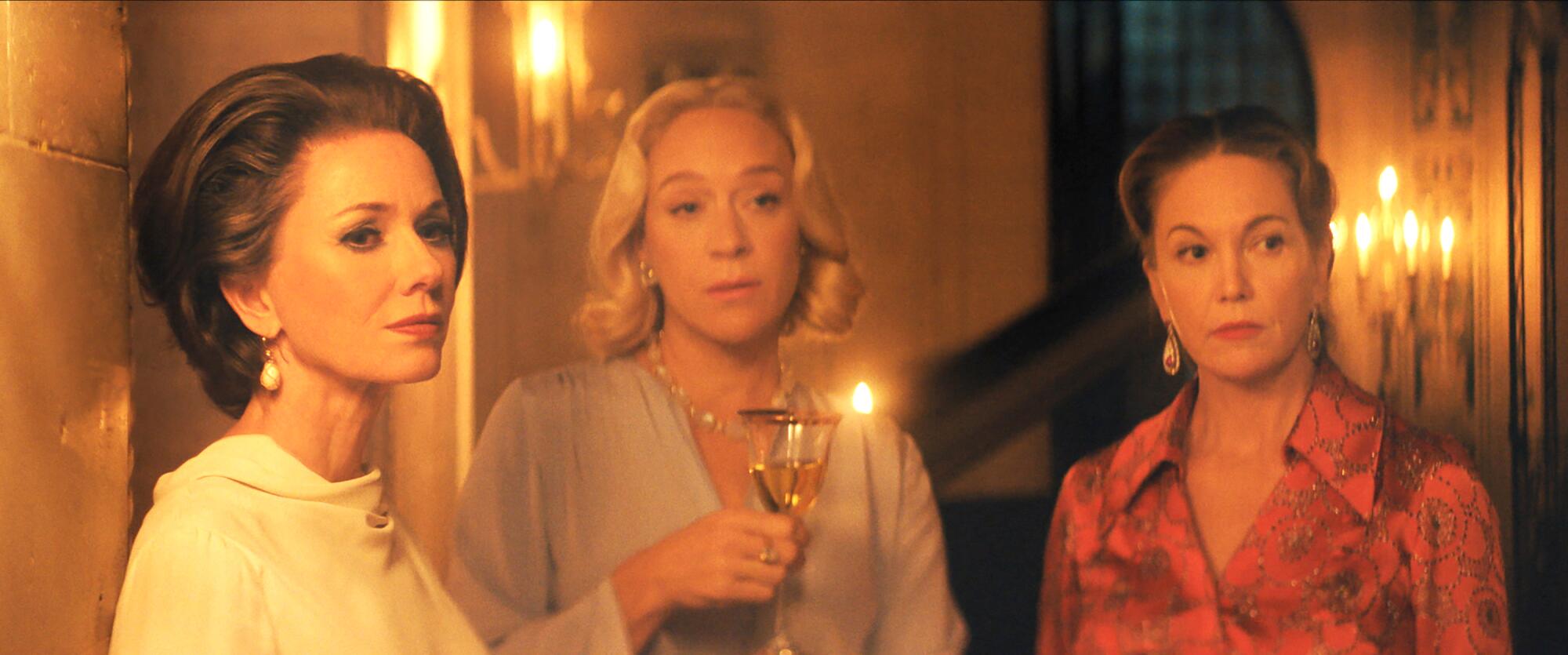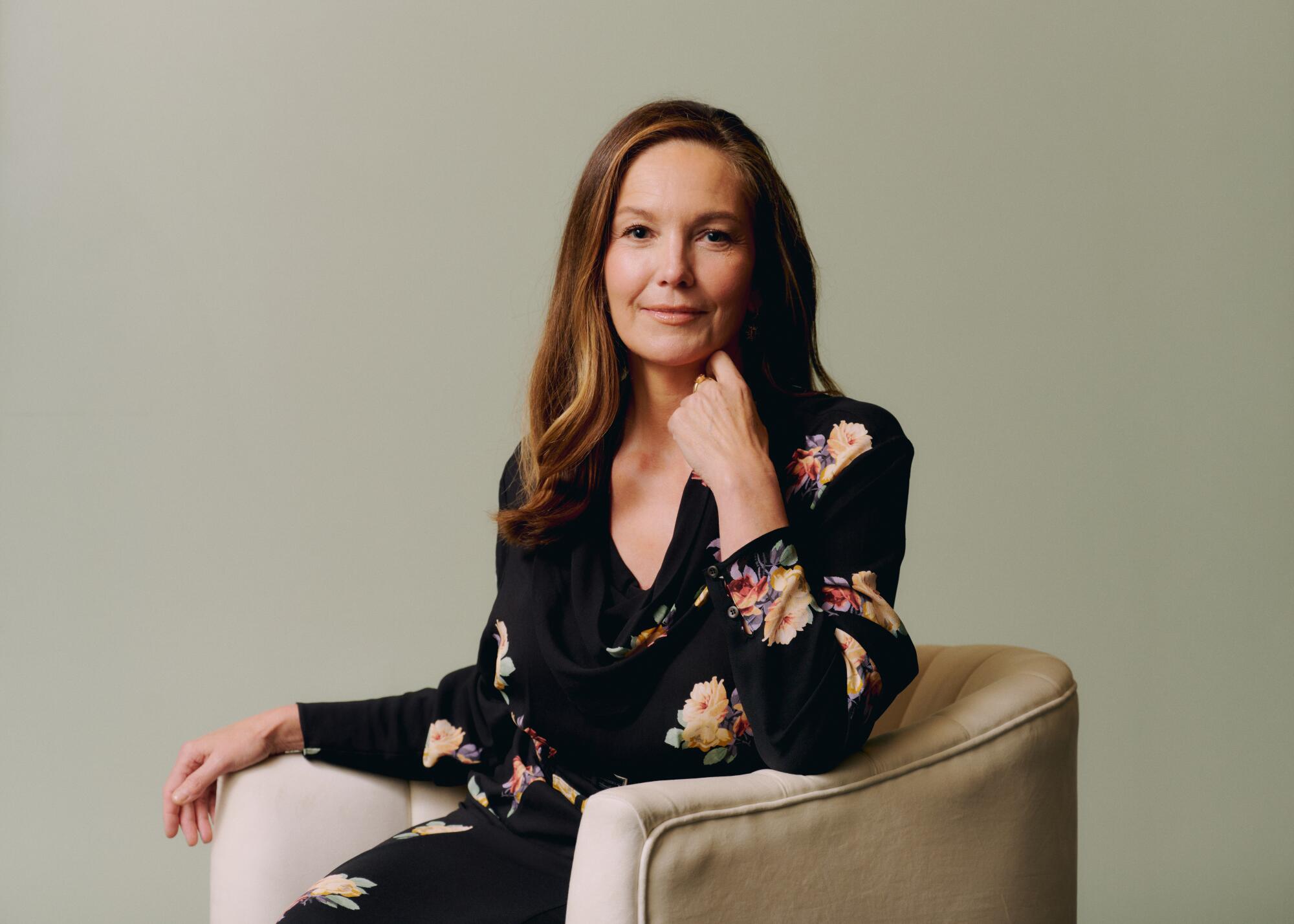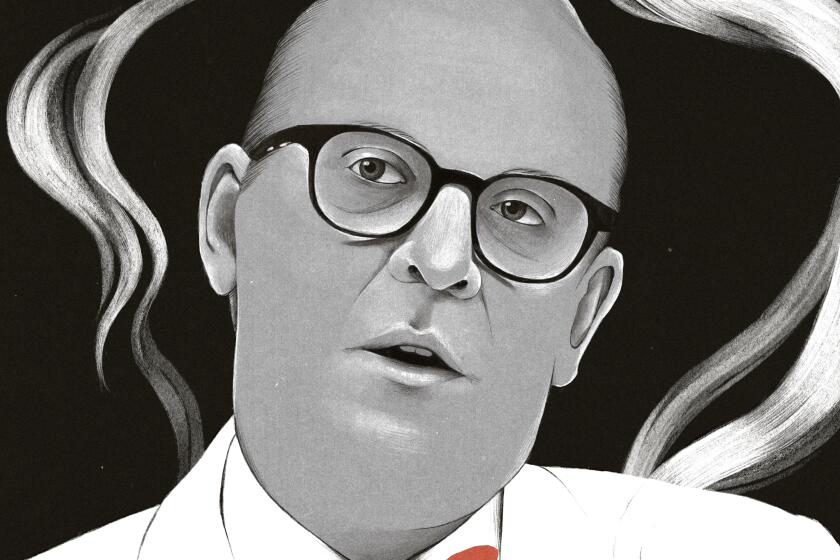
- Share via
Anyone who has followed Diane Lane’s remarkable career over the last few decades has their personal favorite roles: It could be the gifted American girl who falls for a Parisian boy in George Roy Hill’s “A Little Romance,” the hard-rock singer in the dystopian world of “Streets of Fire,” the cheating suburban wife of “Unfaithful,” the heartbroken author who finds a new life in Italy in “Under the Tuscan Sun” or any of the other dozens more memorable heroines she’s played.
Earlier this year, audiences were treated to Lane’s Emmy-nominated portrayal of the feisty socialite Slim Keith in FX’s series “Feud: Capote vs. the Swans.” She left a lasting impression as one of the beautiful “swans,” society women who were betrayed by Truman Capote when he exposed their secrets in his Esquire article “La Côte Basque 1965.” The actor, who also was nominated for an Emmy for her performance in 1989’s “Lonesome Dove,” recently talked about her experience with The Envelope:
A speed round of questions for the flock of feathered friends splashing around Tom Hollander’s titular Capote in the FX limited series.
What was it about this project that sparked your interest?
I loved the first season of “Feud” very much, so I had my ears to the track to see when Ryan Murphy was going to follow it up. I thought the show was a game-changer in terms of creating drama based on real-life, notorious characters whose disagreements were murmured about in the culture. I think [writer/showrunner] Jon Robin Baitz, Ryan and [director] Gus Van Sant were perfect collaborators, and to be honest, it was also great fun. This is a medium that I’m not quite used to, in the sense that I’m still a film actor and used to getting all the scripts before I sign on. But this current working model for streaming projects is different, so that involved a bit of a learning curve.
I know that you read Slim’s memoirs to prepare. What did you find fascinating about this fashion icon/socialite?
I found the different ages and stage of her life interesting because of the perspective you get by looking back on your life and remembering the state of mind you were in at each stage. Slim had a great sense of humor, not only about herself but also about the choices that one makes about one’s age-appropriate behavior at each stage. I just loved the way she felt about her own life and imparted it to the world. I think she used some of the lessons that she learned by not including everything in her memoir, after Truman exposed so much in his article.

Do you have any favorite scenes from the show?
It’s a rare joy to be able to say that each scene had its own feelings of excellence. Witnessing the fashion show that was re-created was epic. It was interesting to learn that certain demographics of people did get invited to these small, very intimate fashion shows. Just slipping into another time when people wore gloves and hats, and there was this sense of decorum and social echelons, was quite interesting. That era was captured so brilliantly by all the project’s different departments who made it all come alive onscreen. By the time we, the actors, got in our positions to do our job, the world was simply there, waiting for us to inhabit. That made our job delightful and fun.
Did you ever get any firsthand info about Slim from those who knew her?
She passed away in 1990 when she was 72, so I didn’t get the chance to talk to many people who knew her. The only one who spoke to me directly about her was Jane Fonda, whose stepmother had been a friend of Slim’s. She shared some funny stories about her, but I couldn’t really incorporate them in the show. That’s the problem when you know too much and the extra information doesn’t quite help you with the role.
What was the toughest part of the job?
It was smoking all those cigarettes. They weren’t tobacco cigarettes — they were made with other herbs. That was tricky for me. As a former and recovered addict of tobacco cigarettes, I was a bit frustrated because they burn at different rates, and funny things can happen when you’re smoking them on the set. You’re not allowed to smoke true tobacco product because of the damaging effects on the crew, so even if you were a smoker, you wouldn’t be allowed to smoke real cigarettes! I think it was amazing that Slim made it so far, considering how many cigarettes she smoked every day!

Why do you think decades after Capote’s experiences with the New York “swans,” audiences are still so intrigued by this story?
It’s the timeless, human nature aspects of the narrative that are at play. It’s all about the punitive nature of jealousy and envy. We are able to delve deeply into Truman’s relationship with his mother. The mother wound is a cliché for a reason. When you are hurt at an early age, it can haunt you forever. Hurt people hurt people! I think Truman showed great restraint for a very long time, so when he did go off the rails, he went farther, deeper and longer, in terms of his self-destruction, than most people.
Let’s talk about your amazing and very long career, which began when you were only 6. What’s your take on the diversity of roles available for women in the industry today?
It’s been a long road to get here in terms of the women who came before me. Each step has been an achievement in terms of what people are willing to be interested in and to tell these stories of women’s experiences and where they fit into the culture. It’s an evolving experience: There’s a lot more material available to unearth as far as where we’ve been historically, as well as current events and certainly projecting those possibilities into the future.
Forty years after his death, Truman Capote continues to draw audiences in for another lascivious story and another dramatic portrayal in ‘Feud: Capote vs. the Swans.’
What advice would you give the 14-year-old Diane, around the time your first movie “A Little Romance” came out and you made the cover of Time magazine?
I’d say, “Try to find a fine balance between being grateful and being humble!” There’s an old joke that says, “Don’t be so humble! You’re not so great!” I also think the important thing is to just enjoy every day. Try to find the good in everything — not just in terms of your career but also in terms of being alive as a human on the planet. I feel very grateful and lucky. It’s true that “It’s nice work if you can get it,” and it does get better with age. I was looking at Jessica Lange’s incredible work as Truman’s mother, and she took it to a level that it needed to be taken to, and she was simply the perfect woman for that. I also look back fondly at my days with Treat Williams on the show. He was filled with such a joyous, peaceful appreciation for our good fortune to be working on something so wonderful and delicious.
More to Read
From the Oscars to the Emmys.
Get the Envelope newsletter for exclusive awards season coverage, behind-the-scenes stories from the Envelope podcast and columnist Glenn Whipp’s must-read analysis.
You may occasionally receive promotional content from the Los Angeles Times.








